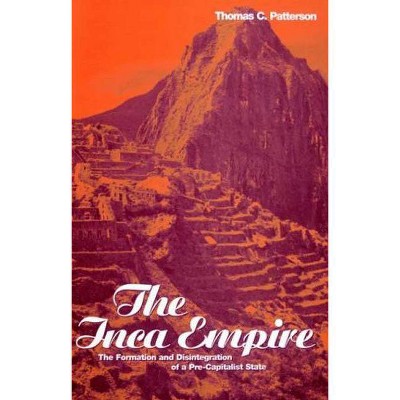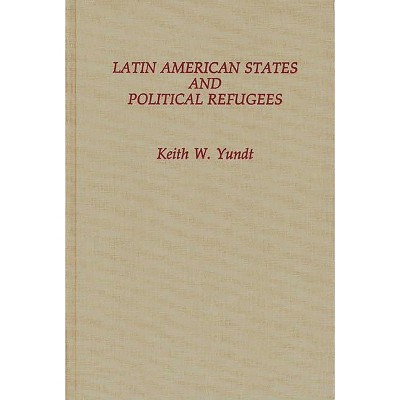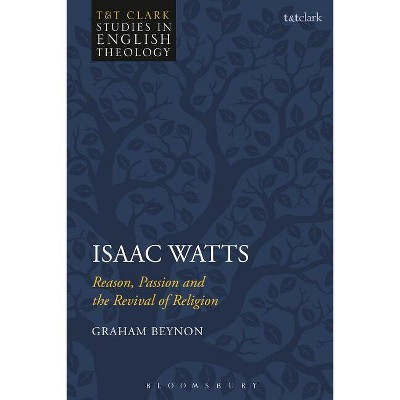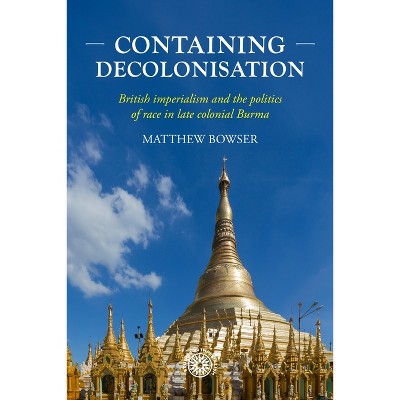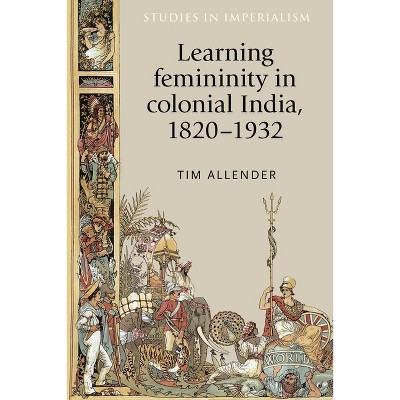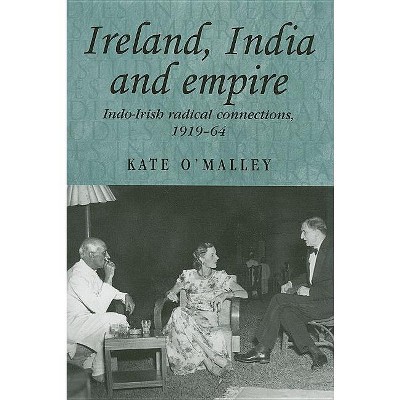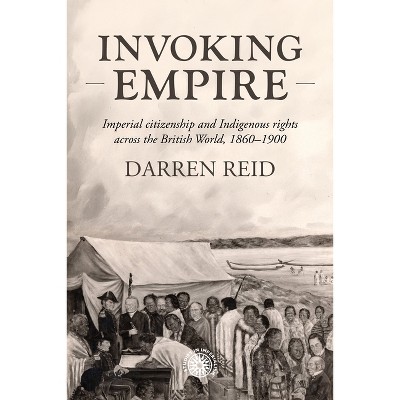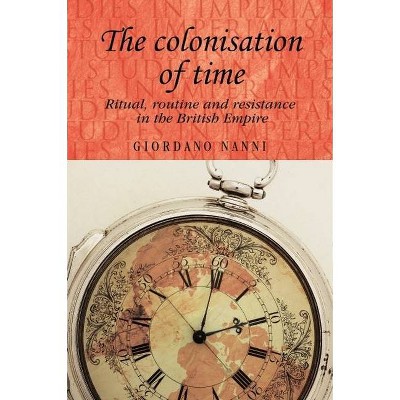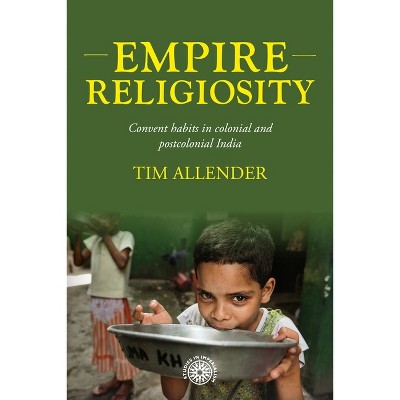Sponsored

The Breakup of India and Palestine - (Studies in Imperialism) by Victor Kattan & Amit Ranjan (Paperback)
In Stock
Sponsored
About this item
Highlights
- This book is the first study of political and legal thinking about the partitions of India and Palestine in 1947.
- About the Author: Victor Kattan is an Assistant Professor at the School of Law, University of NottinghamAmit Ranjan is a Research Fellow at the Institute of South Asian Studies, National University of Singapore
- 312 Pages
- Political Science, Colonialism & Post-Colonialism
- Series Name: Studies in Imperialism
Description
About the Book
These chapters provide deeply researched narratives of the links between partition in India and Palestine in 1947. It focuses on the shared dynamics that shaped both regions, such as violence, the role of religion in politics, majoritarian politics, and the persistence of imperial modes of power.Book Synopsis
This book is the first study of political and legal thinking about the partitions of India and Palestine in 1947. The chapters in the volume, authored by leading scholars of partition, draw attention to the pathways of peoples, geographic spaces, colonial policies, laws, and institutions that connect them from the vantage point of those most engaged by the process: political actors, party activists, jurists, diplomats, philosophers, and international representatives from the Middle East, South Asia, and beyond. Additionally, the volume investigates some of the underlying causes of partition in both places such as the hardening of religious fault-lines, majoritarian politics, and the failure to construct viable forms of government in deeply divided societies.From the Back Cover
'This fascinating collection offers systematic analysis of partition in India and Palestine as processes connected through supranational politics, international law, and transnational networks. Thought provoking, often harrowing and always original, the essays collected here make essential reading for anyone interested in where partitions fit within global decolonisation.' Martin Thomas, University of Exeter
'This is an original book on the momentous years of 1947 and 1948 in the Indian subcontinent and Palestine. By showing how partition failed to resolve the nationality "problems" it was designed to solve, the multi-scalar analyses demonstrate how the seeds were sown for the illiberal majoritarian democracies in these places today.' A. Dirk Moses, City College of New York The breakup of India and Palestine is the first study of political and legal thinking about the partitions of India and Palestine in 1947. It explains how these two formative moments collectively contributed to the disintegration of the European colonial empires, and unleashed political forces whose legacies continue to shape the modern politics of the Middle East and South Asia. With contributions from leading scholars of partition, the volume draws attention to the pathways of peoples, geographic spaces, colonial policies, laws and institutions from the vantage point of those most engaged in the process: political actors, party activists, jurists, diplomats, writers and international representatives from the Middle East, South Asia and beyond. The book investigates some of the underlying causes of partition in both places, such as the hardening of religious fault-lines, majoritarian politics and the failure to construct viable forms of government in deeply divided societies. It analyses why, even 75 years after partition, the two regions have not been able to address some of the pertinent historical, political and social debates of the colonial years. The volume moves the debate about partition away from the imperial centre, by focusing on ground-level arguments about the future of post-colonial India and Palestine and the still unfolding repercussions of those debates.Review Quotes
'This fascinating essay collection offers systematic analysis of partition in India and Palestine as processes connected through supranational politics, international law, and transnational networks. Thought provoking, often harrowing and always original, the essays collected here make essential reading for anyone interested in where partitions fit within global decolonisation.' Martin Thomas, University of Exeter
'An expert team of authors assembled by Victor Kattan and Amit Rajan have produced an original book on the momentous years of 1947 and 1948 in the Indian subcontinent and Palestine. By showing how partition failed to resolve the nationality 'problems' it was designed to solve, the multi-scalar analyses in The breakup of India and Palestine demonstrate how the seeds were sown for the illiberal majoritarian democracies there today. A brilliant achievement.' A. Dirk Moses, Anne and Bernard Spitzer Professor of International Relations at the Colin Powell School for Civic and International Leadership at the City College of New York, CUNY 'This book is expertly planned, presented and written. Each chapter links into the next, enabling a seamless comparative account of colonial and postcolonial governance agendas through the prism of partition politics. The detailed investigation into the latter gives a balanced account and adds an analytical rigour to the academic literature on the topic, which is skewed towards colonial politics and limits the agency of the postcolonial societies.'International Affairs 100: 2, 2024
About the Author
Victor Kattan is an Assistant Professor at the School of Law, University of Nottingham
Amit Ranjan is a Research Fellow at the Institute of South Asian Studies, National University of Singapore
